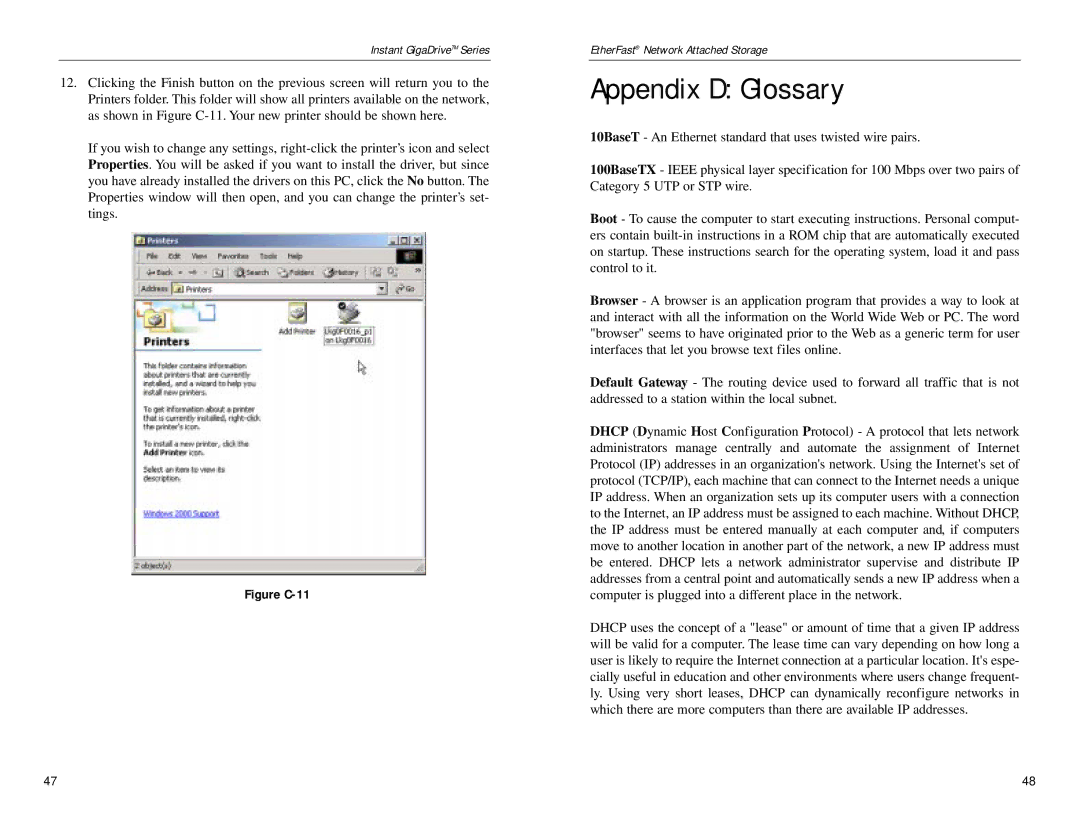
Instant GigaDriveTM Series
12.Clicking the Finish button on the previous screen will return you to the Printers folder. This folder will show all printers available on the network, as shown in Figure
If you wish to change any settings,
Figure C-11
EtherFast® Network Attached Storage
Appendix D: Glossary
10BaseT - An Ethernet standard that uses twisted wire pairs.
100BaseTX - IEEE physical layer specification for 100 Mbps over two pairs of Category 5 UTP or STP wire.
Boot - To cause the computer to start executing instructions. Personal comput- ers contain
Browser - A browser is an application program that provides a way to look at and interact with all the information on the World Wide Web or PC. The word "browser" seems to have originated prior to the Web as a generic term for user interfaces that let you browse text files online.
Default Gateway - The routing device used to forward all traffic that is not addressed to a station within the local subnet.
DHCP (Dynamic Host Configuration Protocol) - A protocol that lets network administrators manage centrally and automate the assignment of Internet Protocol (IP) addresses in an organization's network. Using the Internet's set of protocol (TCP/IP), each machine that can connect to the Internet needs a unique IP address. When an organization sets up its computer users with a connection to the Internet, an IP address must be assigned to each machine. Without DHCP, the IP address must be entered manually at each computer and, if computers move to another location in another part of the network, a new IP address must be entered. DHCP lets a network administrator supervise and distribute IP addresses from a central point and automatically sends a new IP address when a computer is plugged into a different place in the network.
DHCP uses the concept of a "lease" or amount of time that a given IP address will be valid for a computer. The lease time can vary depending on how long a user is likely to require the Internet connection at a particular location. It's espe- cially useful in education and other environments where users change frequent- ly. Using very short leases, DHCP can dynamically reconfigure networks in which there are more computers than there are available IP addresses.
47 | 48 |
